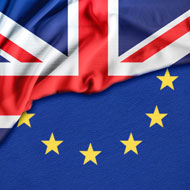Brexit: Defra urged to increase veterinary capacity

The BVA is calling for vets to be reinstated on the Shortage Occupation List to avoid shortfalls in capacity.
Defra is being urged to develop a ‘credible plan’ to increase veterinary capacity for export health certificates after Brexit.
The recommendation was made in the Public Accounts Committee report, Defra’s progress towards Brexit.
If there is a no-deal Brexit, UK exports of animals and animal products could be delayed if there is a lack of vets to meet the increased demand for veterinary certification and border checks.
Exports will be carried out subject to the EU listing the UK as an accepted third country. Even when access to the Single Market is achieved, previous warnings suggest that there could be a 325 per cent increase in the volume of products requiring veterinary certification as they leave and enter the UK.
The BVA is calling for vets to be reinstated on the Shortage Occupation List to avoid shortfalls in capacity.
President Simon Doherty said in a statement: “This report puts addressing concerns about veterinary capacity top of Defra’s to-do list. The Department has an unenviably mammoth task of contending with the current knowns and unknowns that Brexit may bring across agricultural and environmental policy, but we would certainly urge them to take heed of this report and its wide-ranging evidence base.
“We have had assurances from Government that there will be enough vets to meet certification demand after Brexit but this does not necessarily tally with what we are hearing from our members.
“Many are concerned that they could end up being spread too thin and having to take on extra certification responsibilities on top of existing heavy workloads if no agreement is reached. It’s telling that the committee has called Defra ‘cavalier’ for assuming that only 50 further vets will be enough to meet these requirements.
“It is critical that the government fully engages with the veterinary profession on matters which may have a bearing on their vital work supporting animal welfare, public health and future trade.”



 The Federation of Independent Veterinary Practices (FIVP) has announced a third season of its podcast, Practice Matters.
The Federation of Independent Veterinary Practices (FIVP) has announced a third season of its podcast, Practice Matters.